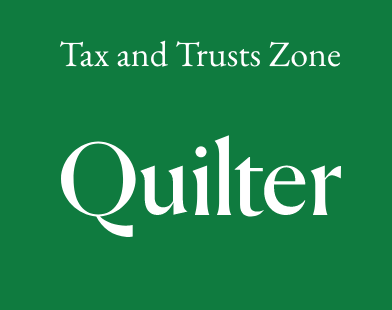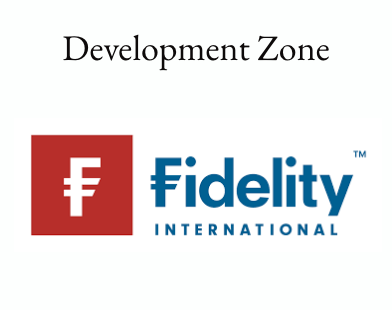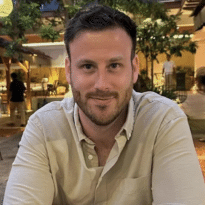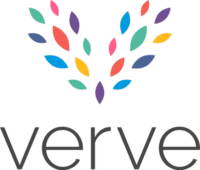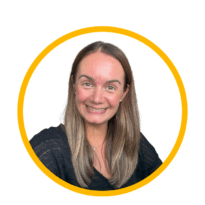The perceived threat to paraplanning that has arisen from the promotion of AI products, fails to understand the true value of paraplanners, Scott Daniels, co-founder and director of Plus Group, tells PP editor Rob Kingsbury.
The proliferation of AI products promoting cost savings on the promise of a reduced requirement for paraplanners in a business, can make it feel like paraplanning is under attack at the moment, says Scott Daniels director of Plus Group.
“There’s a lot of negative rhetoric saying firms can replace paraplanners with AI and they won’t need as many paraplanners in the future. But a lot of this is smoke and mirrors. When you actually delve under the bonnet, the substance isn’t always there.
“You can’t ignore AI, and we are working with a firm at the moment to bring it into our business. We see AI complementing and augmenting our teams, not replacing them. The key message we want to put out there is that AI will make paraplanners’ and administrators’ lives easier, but it’s no substitute.
“Over the 11+ years we’ve been in business, we’ve been promoting paraplanning as a growing profession – as has Professional Paraplanner. Often, the people building the AI are not from the industry, they don’t fully understand the processes, so they don’t get that paraplanning isn’t a commodity, it’s far more than that. AI can help with report writing but that’s just part of what a paraplanner does. Now, paraplanning is far more about technical support, that’s where paraplanners add true value.”
Scott says he can see why the AI vendors are focussing on reductions in paraplanners as part of their sales pitch. “If you’re trying to sell something new to advice firms, then saving costs and helping to meet Consumer Duty and servicing more clients without increasing your cost base, are all messages advice firms want to hear. It might be that AI can write basic financial advice cases, but there’s a whole human element around that – discussing the cases, looking at the technical aspects within the advice framework, etc – which require the experience and expertise that paraplanners bring to the process.
“We need to be mindful of this. By rushing into AI to reduce overall costs, there is a danger you lose sight of where paraplanners add value.”
In approaching AI for the Plus Group business, Scott says, the firm has taken a step back from the rhetoric and hype in the market. “We’re looking at where AI can make our paraplanners more efficient and allow them to focus their efforts where we know they can add the most value – and that’s not in report writing.
“We’re looking at AI as not just a quick fix on costs but rather in terms of the practicalities of using it and doing so in a more measured way that is sustainable in the long run.
“We’ve been around for a long time in this market and it’s understanding where things are going and where the industry might be in five years’ time, that will be important. There are consolidators and new businesses coming to market that are doing things differently. So we’re putting a lot of thought into this and the quality of what’s needed,” Scott says.
Five years hence
While Scott sees a trend to consolidation in the outsourced paraplanning market, he believes there will be a place for different sized companies in the long run. While larger companies will have the resource and capital to invest in technology, for example, smaller companies can have a cost-based advantage, he argues. But as technology brings costs down, that dynamic may change, and smaller firms need to be thinking about that.
“I do think small outsource firms will still be needed. There’s been a boom in outsourced companies launching over the past few years and I don’t think we’ll see that again. Now, it will be more challenging to set up and compete, but I can see some advisers still wanting to use smaller outsourced companies and also people going niche and specialising. There’s a risk to specialising as we saw with the boom in defined benefit work, but it’s about adapting to how the market is changing and seeing where you can add value.”
Looking five years out, Scott questions whether the term paraplanner will still be the right one for the role.
“The word paraplanning is to a large extent associated with report writing but paraplanners these days do so much more. They are much more technical and do a lot more for the advice business.
“As the industry moves forward, advisers are going to be able to service and look after more clients. They will do this through technology and having the right people behind them who are their technical support.
“Then, I see paraplanners being viewed as at the same level as advisers. The adviser will be much more focused on building the relationship with clients, understanding the clients’ goals, needs, and aspirations, with a view to achieving good outcomes, which is where the FCA’s Consumer Duty is focusing. Hand-in-hand with that will be the technical support team understanding the regulation, tax, etc, who will be fundamental in the analysis, research and recommendations in the financial plan.
“It is happening to an extent now but I can see it becoming the way things work as advice businesses themselves change and look to become more efficient.”
Scott believes this may require a rethink of who is responsible for the advice from a regulatory perspective. It will also mean a review of the minimum qualification to be a paraplanner, he argues. “We’ve seen paraplanning become more of a profession and this will take it a step further.”
For new paraplanners, therefore, Scott says it’s now important to understand the technology side of the business, and where AI fits in.
He still sees starting in administration as a good foundation in order to gain a knowledge of how the business works and the processes needed to produce a financial plan for clients.
“Then they should be looking at where they can add value in an AI world,” Scott says. “Not just in terms of qualifications but also what are the skills they will need and that includes communication and soft skills, the emotional intelligence to do a good job for clients.
“They should also look at specialisms, becoming a real expert in an area that will make them stand out.”
Scott scooped the Paraplanner of the Year award at the PFS awards in November 2024 and is confident Plus Group has a great future ahead of it. “We approach things using our experience and expertise in the market and do so in a methodical way, so we make sure everything we do works as we want it to – that is the secret to our success,” he says.
How Plus Group uses AI will be part of that approach. Watch this space, he advises.
Main image: scottsdale-mint-XHikIfxVZdY-unsplash







